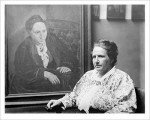Adolescence
While I was an adolescent, everything that is crucial to my identity happened. Because those adolescent experiences were so vivid, I could never accept the notions of the determining impact of the unconscious or the affective power of early childhood traumas with any enthusiasm. So, I’m not a Freudian even though it was the reigning psychological ideology during the 1950s. The general ideas of Freud are plausible in the abstract if not in the specifics, but I remain deeply resistant to the idea that we are primarily shaped by our infantile experiences.
Adolescence as the determining period in the creation of the self seems more common-sensically true. As an adolescent, my relationships with the boys with whom I played sandlot baseball and went to Marshall, and then Austin High School in Chicago–the Murphy brothers, Eddie Lacy, Bob Greenspan, Abe Dorevich, Nick Kinnis, Mel Weisberg–set the parameters of my notions of friendship, loyalty, physical beauty and desire. Adolescence is when I first contemplated the nature of the starry universe; became engrossed in politics (the McCarthy-Army U.S. Senate hearings on communism, which I watched on TV after school); and acquired a taste for “bohemian” company–in drama class with Sandra S., “Bunny,” Chuck Harris. It’s also when I began to write.
One day, age thirteen or so, I was working–inkily and ineptly–in the school mimeograph room with Bob Perna, a local “tough” of Mediterranean lineage. He told me about an uncle of his who was an artist. I looked up blankly from the clicking drum of the mimeo and registered his disappointment when I failed to recognize the name of his relative, Salvador Dali, or the remarkableness of being so related. After all, I was supposed to be a “brain.” I was awed by Perna’s sophistication, his assumption that one should surely know who Dali was, by the intimation that a larger world existed and could be the concern of people like me.
Now that I’m sixty, I still often encounter situations in life through the experiential grid built when I was a teenager. If this is “arrested development,” as the Freudians of my youth would have had it, then so be it.


